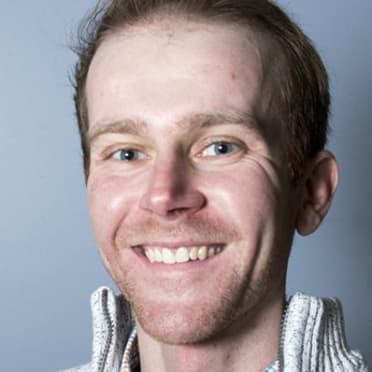Servais talks Mariners' flurry of early trades
Dealing Suárez, Kelenic creates areas of focus -- and concern -- ahead of 2024
NASHVILLE, Tenn. -- Mariners president of baseball operations Jerry Dipoto has been front and center throughout the Winter Meetings, but manager Scott Servais is also in town, and spoke publicly for the first time since Seattle’s season-ending press conference.
Some highlights:
The blunt assessment
Servais recognizes that, as currently constructed following multiple trades motivated by payroll flexibility, the Mariners are not a playoff-caliber team, particularly in a division that houses each of the past two World Series champions.
Yet he reiterated what Dipoto said the day prior, that -- despite recent and unforeseen financial challenges related to the club’s regional sports network package -- Seattle can and will add impact talent before the offseason’s end.
“I don't do the books,” Servais said. “I coach the team. But that's my understanding, is that we will. We need to get better. Our lineup is not complete right now.”
The plan at 3B
As of now, while Josh Rojas could be in the mix, Luis Urías will take over for Eugenio Suárez as the Mariners’ primary third baseman. But it’s written in pencil, not pen.
“We'll wait and see how the rest of the offseason plays out, but Urías has had stretches to be very productive,” Servais said. “Certainly last year, injuries got him and he didn't have a typical year that he's used to. But we're early in the offseason. I know everybody wants to see things happen right away, but it's a process. You've got to work through things with teams and free agents and whatnot. That's what we're doing right now.”
The types of players they’re seeking
The Mariners now have holes in the corner outfield with the departures of Jarred Kelenic and Teoscar Hernández, as well as another run producer in Suárez. Who do they plan to replace that production with?
"Guys that maybe have a history of [doing it], or could hit the middle of your lineup,” Servais said. “Guys that are going to be productive, drive in runs and do all those other things. Certainly, we lost some from last year's team between Teo and Geno and now Jarred. Those guys had thump. They hit the ball over the fence. There are a lot of different ways to score runs, win games, but we need to add bats.”
Given their budget situation, the more realistic avenue will likely be the one that has defined this front office’s roster building: trades.
The state of clubhouse leadership
Trading Suárez, a fan favorite, left far more than a hole in Seattle’s lineup, as the Mariners must now replace the credibility and affability that he carried with teammates. For a young group, there’s a legitimate question as to who the Mariners fill that void with.
“I think we've got a number of guys,” Servais said. “I've talked about our core players before, and for me, it's our shortstop. He's certainly got big-time leadership ability, J.P. [Crawford]. We saw Cal Raleigh, the voice that he's carrying in our clubhouse is huge. As Julio [Rodríguez] continues to mature, he's going to be one of those leaders. And Robbie Ray is a big leader on our pitching staff.”
“Players always listen to players more than they're going to listen to coaches, so those guys have a clearer idea of what's important to us and how we go about winning," added Servais. "I don't see that changing a lot. The voices will change. But J.P. is certainly capable, as is Cal. And Julio is coming in that regard, as well.”
The reflection on Kelenic
Now that Kelenic has left the organization via Sunday’s trade with Atlanta, there will always be a “what-if” attached to the former top prospect who just a few years ago looked like a foundational face of the future.
"Everybody wants it to be easy, just hit the ground running and take off at the big league level, but that's not realistic,” Servais said. “I do think there are a lot of good things ahead of him. He's very productive. The talent, the skills, they're all still there. He's young. He's very young in his career.”
Kelenic had some huge moments in Seattle, but the 24-year-old also experienced inconsistencies and temper flare-ups. Is there any second-guessing on how his player development was handled?
“I think it's a fair question,” Servais said. “I think players, they progress and they mature. Everybody is different based on, a lot of times, the environment, the situation. They come into your organization ... and it's just the maturation process. Some players are ready to just hit the ground running. Other guys, they're going to stub their toe.”
